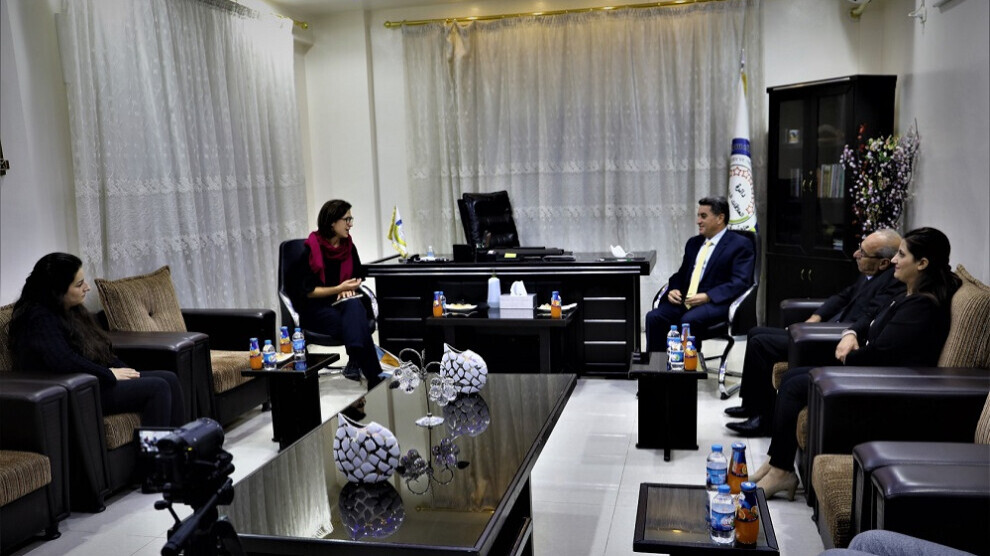MEP Neumann in Northeast Syria for talks
Hannah Neumann, the foreign policy expert of the Greens in the European Parliament, is currently in the North-East Syrian autonomous region for talks.
Hannah Neumann, the foreign policy expert of the Greens in the European Parliament, is currently in the North-East Syrian autonomous region for talks.

Green member of European Parliament Hannah Neumann has arrived in the autonomous region of Northern and Eastern Syria for a three-day visit. The peace and conflict researcher, who has a doctorate in peace and conflict studies, was received at the Sêmalka border crossing. Before that, she was in Southern Kurdistan and Iraq for diplomatic talks. In Qamishlo, Neumann met on Thursday with the co-chair of the Foreign Affairs Department of the Autonomous Administration, Abdulkarim Omar. during the meeting, the political, security and humanitarian situation in Northern and Eastern Syria was discussed. Visits to the detention camps Hol (al-Hawl) and Roj a Camp nd meetings with civil society are planned for the next few days. The situation of the imprisoned IS members will also be discussed.
Neumann stated that she would review in particular the situation of the region and especially the population after the Turkish invasion of northern and eastern Syria. She said she also wanted to get a picture of the system of gender-balanced dual leadership, according to which the chairmanship of an institution must always be held by at least one woman and one man.
The main focus of the Green foreign policy expert's visit, however, is to create secure conditions for humanitarian aid deliveries to the autonomous regions. Last July Russia used a veto in the UN Security Council to ensure that only one border crossing (Bab al-Hawa) could be used for the delivery of humanitarian aid to northern Syria. This blocked all routes that could still be used to get humanitarian aid past Damascus to those in need. The Syrian regime and Russia as the protecting power of Damascus use humanitarian aid as a means of power.
Until the beginning of the year, four border crossings were still open for aid deliveries to areas not controlled by Damascus. But then in January Russia closed the border crossing for the northeast, on which almost two million people depend, as well as a border crossing in the south. In the summer, Moscow then closed another one in the northwest. According to the UN, the supply of more than eight million people is at risk.